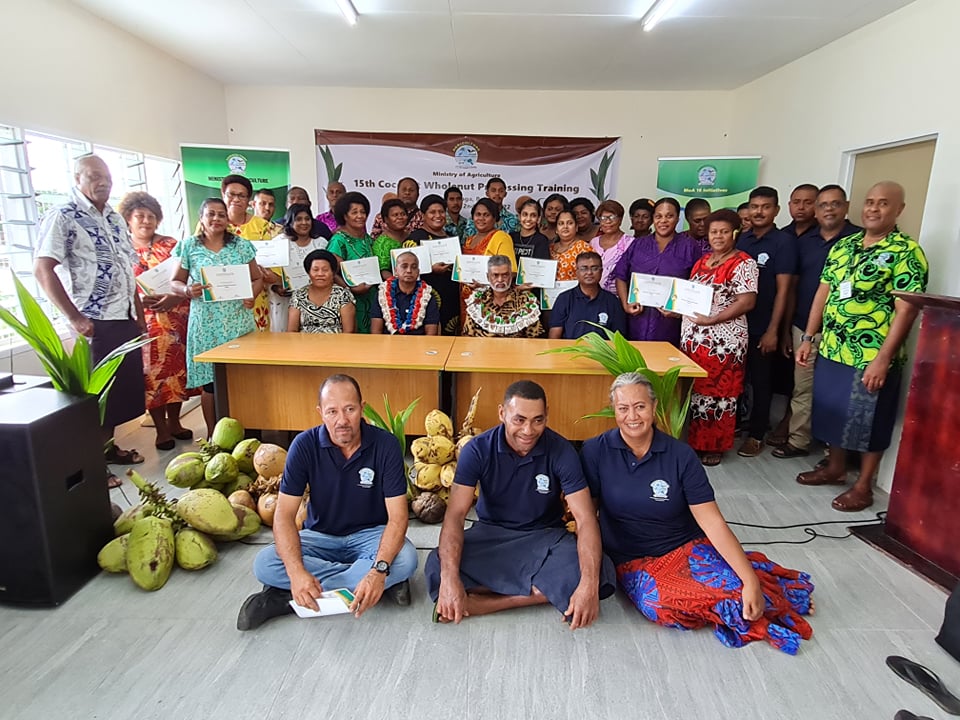Coconut Training held to revive interest in industry
April 1, 2022

A week-long training to promote
and create interest to rejuvenate the ailing coconut industry ended in Nailaga,
Ba today (2.4.22).
With the theme of economically empowering
and enhancing coconut knowledge base in communities in the rural communities,
Assistant Minister for Agriculture, Hon. Viam Pillay said the training would
provide knowledge and skills in whole nut processing and value adding.
“Apart from generating income,
the coconuts help to sustain food and nutrition and alleviate poverty.
“The training also focuses on
productivity on productivity and product diversification from traditional copra
production to whole nut processing,” he said.
The Assistant Minister explained new
market opportunities had emerged in high-value products such as virgin coconut
oil (VCO), coconut water and coconut sugar, which became increasingly popular
due to newly identified health benefits.
“A greater demand for these
products, along with actions to address industry constraints, could pave the
way for local economies and producer groups to benefit directly from higher whole-nut
prices at lower production costs, when compared to copra sales,” Hon. Pillay
said.
“Using the most appropriate technology and
approach will enable producers, women’s groups in particular, to have a more
integral role in coconut-related value chains, or even to sell to the final
consumer market directly.”
Further, he said while coconut was by
far an important agriculture crop in Fiji, the industry was far from reaching
its full potential.
This shortcoming, the Assistant Minister added, had
deep historical roots but was commonly associated with the decline of prices
offered in the global market resulting in a drop in interest in the global
market for copra, the crop’s main by-product.
“Other constraints to the industry’s development
include, the age and productivity of coconut plantations, access to information
and financing services for smallholders, the need for improved risk management,
and a more supportive and coordinated national policy environment,” he said.
Almost 30 participants from Ba, Tavua, and Lautoka
including staff from the Ministry of Agriculture attended the training.
-ENDS-
